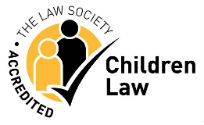Many a rock band's name is dreamt up by youthful musicians without the slightest regard for the value it may one day have. However, chart success tends to breed goodwill in a name and, as a High Court ruling showed, that is a sadly frequent cause of friction as the years go by.
The case concerned a band whose name became widely known after it produced a number of hits in the 1970s. The thirst for nostalgia acts meant that it continued to tour successfully. Its lead vocalist, however, eventually went his separate way after the band was riven by disagreements about money.
The band's bass guitarist and drummer – who were both members of its original line-up – continued to tour and to market their band, using the disputed name. The bass player also sought to maintain his band's use of the name by registering a UK trade mark. The vocalist and his trading company responded by launching a passing off claim against the pair, together with a more recent band member.
Ruling on the case, the Court noted that, from 1983 onwards, the band traded under the auspices of the company. All of its earnings were paid to the company and, with the exception of the vocalist, who was remunerated via his share of the company's profits, the band members were paid performance fees.
Upholding the claim, the Court found that the vocalist and his company owned the relevant goodwill in the disputed name from at least 1983. It was not correct to say that, simply because some original band members continued to perform together, they had a right to make use of the name. The evidence suggested that the defendants' continued use of the name following the split caused public confusion and damage to the vocalist's business.
In also declaring the trade mark invalid, the Court found that it was not registered in good faith. The registration was motivated by an intention to interfere with the legitimate business of the vocalist and his company. The bass player's conduct in applying for the trade mark fell short of the standards of acceptable commercial behaviour observed by reasonable and experienced people in the music business. The Court heard further argument as to the consequences of its ruling.




